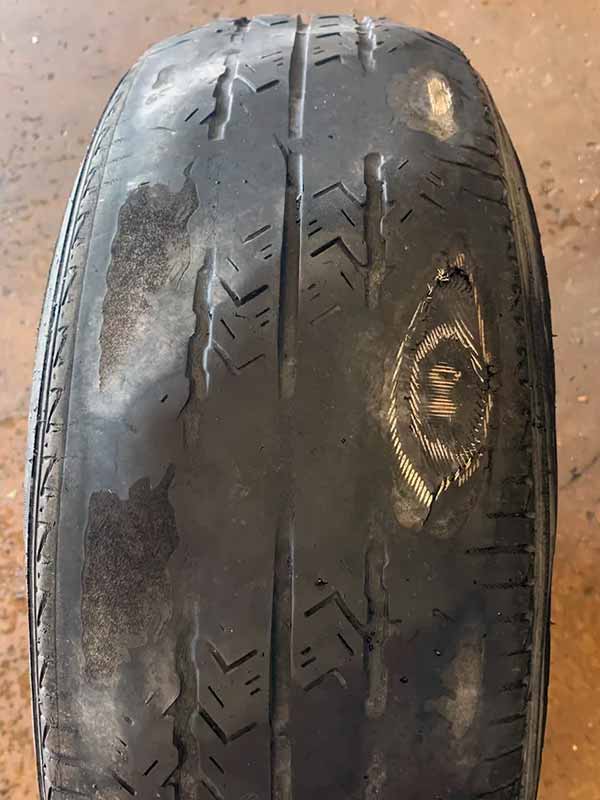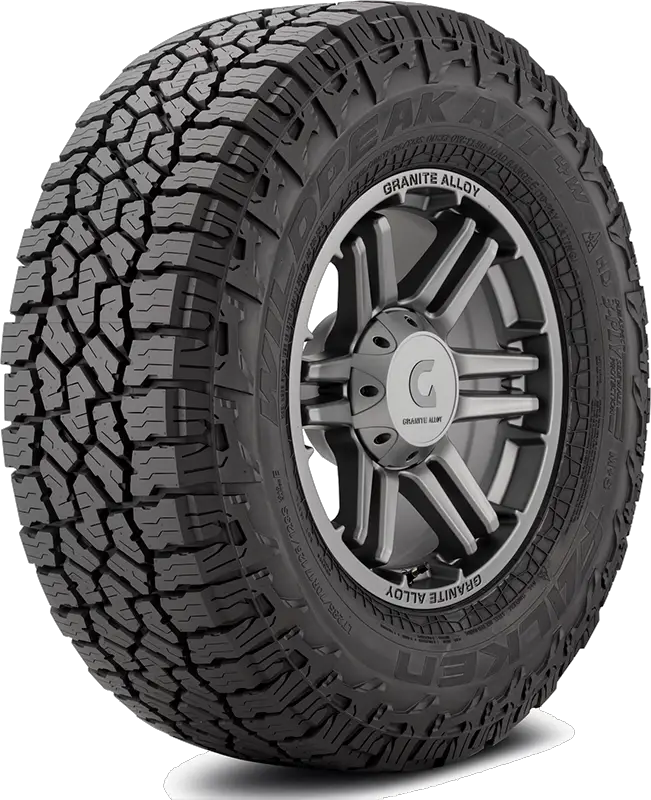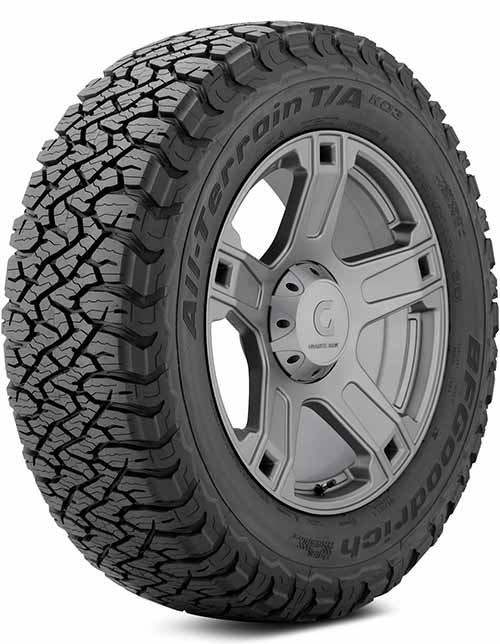Have you ever felt that odd vibration in your steering wheel or heard a thumping noise from your tires while driving? These could be signs of an out-of-round tire, a common yet often overlooked issue that can affect your vehicle’s performance and safety.
Out Of Round Tire Symptoms
Out-of-round tires are characterized by:
- Irregularities in their shape
- Uneven tread wear
- Vibrations
- Noise while driving
These issues require professional attention for correction and cannot self-correct over time.
In this article, we’ll explore the symptoms, causes, and solutions for out-of-round tires. We’ll discuss how to identify them, what leads to these issues, and professional methods for fixing them, including tire shaving and replacement. Additionally, we’ll provide insights into preventing future tire problems and maintaining optimal tire health.
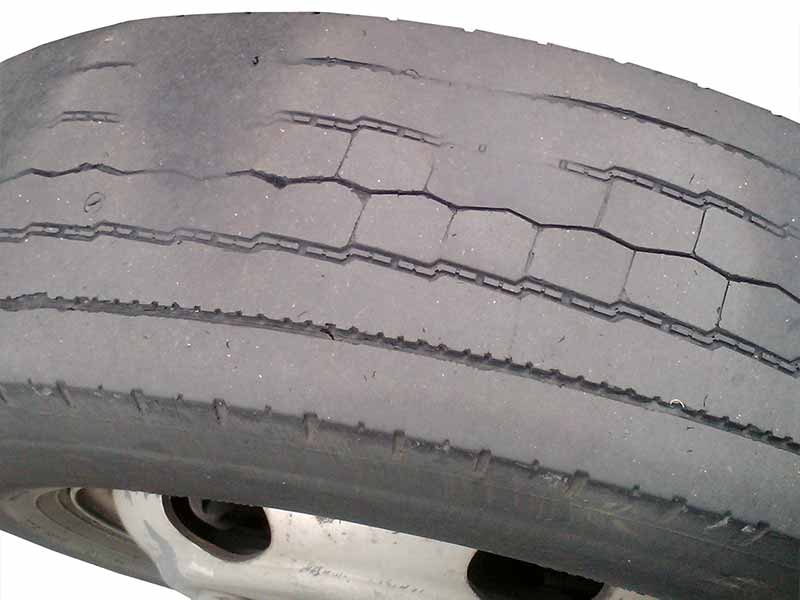
Identifying Out of Round Tires
Welcome to the world of tires – where even a small issue like an out-of-round tire can make a big difference in your driving experience. Let’s dive into how you can spot these pesky problems before they turn into a larger headache.
Visual Signs: A Tire’s Silent S.O.S.
First up, let’s talk about what you can see. Out-of-round tires have a way of showing their discomfort. Keep an eye out for:
- Uneven Tread Wear: This is your tire’s way of waving a red flag. If you notice the tread is wearing down unevenly, it’s time to pay attention. Uneven wear can look like patchy tire wear or even something more severe like tire cupping.
- Bulges and Flat Spots: These are the bumps and bruises of the tire world. A bulge or a noticeable flat area on the tire’s surface is a clear sign that something’s not right.
Auditory Signs: Listening to Your Tires
Now, let’s tune our ears. An out-of-round tire often makes its presence known audibly:
- Thumping or Uneven Noise: If you start hearing a rhythmic thumping noise from your tires as you drive, that’s not your car’s new soundtrack. It’s a telltale sign that one of your tires might be out of round.
Driving Experience: Feeling the Road
Lastly, let’s talk about what you feel when you’re behind the wheel:
- Vibration or Wobbling: If your steering wheel feels like it’s dancing or your car seems to wobble, especially at certain speeds, it could be due to out-of-round tires.

Causes of Out-of-Round Tires
Now that we know how to spot an out-of-round tire, let’s dig into why this happens. Understanding the root cause can be crucial in preventing future tire troubles.
Manufacturing Defects: Not All Tires are Perfect
Sometimes, the issue starts right from the beginning:
- Imperfect Production: No manufacturing process is flawless. Occasionally, a tire might come out of the factory slightly out of shape. It’s rare, but it happens.
Impact Damage: Life’s Bumpy Roads
The world isn’t always kind to our tires. Here’s what can throw them off balance:
- Potholes and Curbs: Ever hit a pothole a bit too hard? That jarring impact can deform your tire, leading to an out-of-round situation.
- Accidents: Even minor scrapes and bumps in traffic can affect your tires more than you might think.
Improper Storage and Inactivity
Tires need to be used, and here’s why:
- Long Periods of Inactivity: Letting your car sit for too long can cause flat spots on the tires. It’s like when we sit in one position for too long – we get stiff. Tires do, too.
- Incorrect Storage Conditions: If you’re storing tires, they need a cool, dry place away from direct sunlight and chemicals. Bad storage can warp tires over time.
Wear and Tear Over Time
Last but not least, the simple passage of time:
- Normal Usage: Just like anything else, tires wear down with use. Regular driving, turning, and braking can eventually lead to tires becoming out of round.
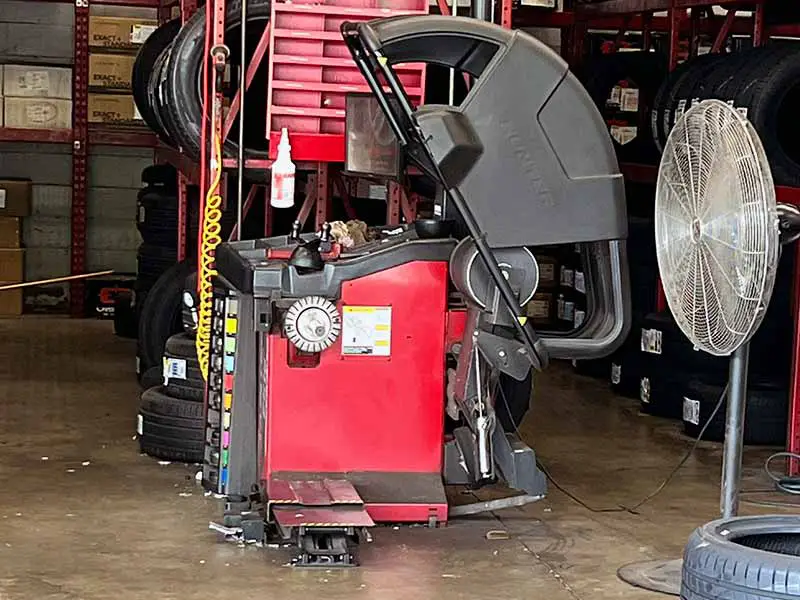
Can Out-of-Round Tires Fix Themselves?
It’s a question many car owners wonder: Can a tire that’s out of round just get back into shape on its own? Let’s debunk some myths and set the record straight.
The Myth of Self-Correction
Here’s the hard truth:
- No Self-Healing: Unlike our bodies, tires don’t have the ability to heal or self-correct. Once a tire is out of round, it stays that way unless you take action.
The Reality of Professional Intervention
So, what’s the real solution?
- Professional Assessment is Key: If you suspect your tire is out of round, the best course of action is to have it checked by a professional. They can assess the extent of the issue and recommend the best course of action.
Why Waiting Isn’t Wise
Ignoring the problem isn’t an option. Here’s why:
- Safety Risks: Driving on out-of-round tires can be unsafe. It affects handling and braking, which could lead to dangerous situations on the road.
- More Wear and Tear: Letting an out-of-round tire go unchecked can cause further damage to the tire and even affect other parts of your vehicle, like the suspension.
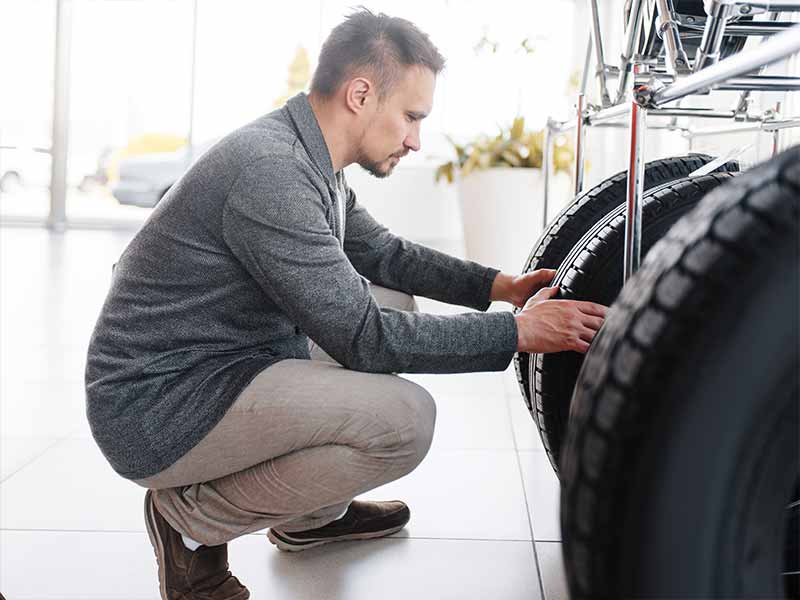
Fixing Out-of-Round Tires: Professional Solutions
So, you’ve got an out-of-round tire. What now? Let’s explore the solutions that can bring your tires and your drive back to smoothness.
Tire Shaving: Precision Correction
- What is Tire Shaving?: This is a process where a small layer of the tire’s tread is removed evenly to make it round again. Think of it as a haircut for your tire, trimming off the uneven parts.
- When to Opt for Shaving: Tire shaving is ideal for minor out-of-round issues where the tire’s integrity isn’t compromised.
Replacement: Starting Fresh
Sometimes, a fresh start is best:
- Severe Cases: If the tire is too far gone or if shaving won’t solve the issue, replacing the tire is the safest bet.
- Consider a Full Set: Depending on the wear on your other tires, you might need to consider replacing more than just the affected tire for balanced driving.
Balancing: The Fine Tuning
Don’t overlook this crucial step:
- Minor Runout Issues: For slight imperfections, balancing the tire can be enough. This involves adjusting the weight distribution around the tire.
- Regular Maintenance: Regular balancing is key to preventing and addressing minor issues before they become major. Learn more about the importance of this with our guide on what is road force balancing.
DIY Approach: Tread Carefully
For the hands-on car owner:
- Basic Steps: You can check for tire runout at home using a dial indicator. But remember, this is more about diagnosing than fixing.
- Professional Help is Best: If you find an issue, it’s wise to take your car to a professional. DIY fixes for out-of-round tires can be risky if you’re not experienced.
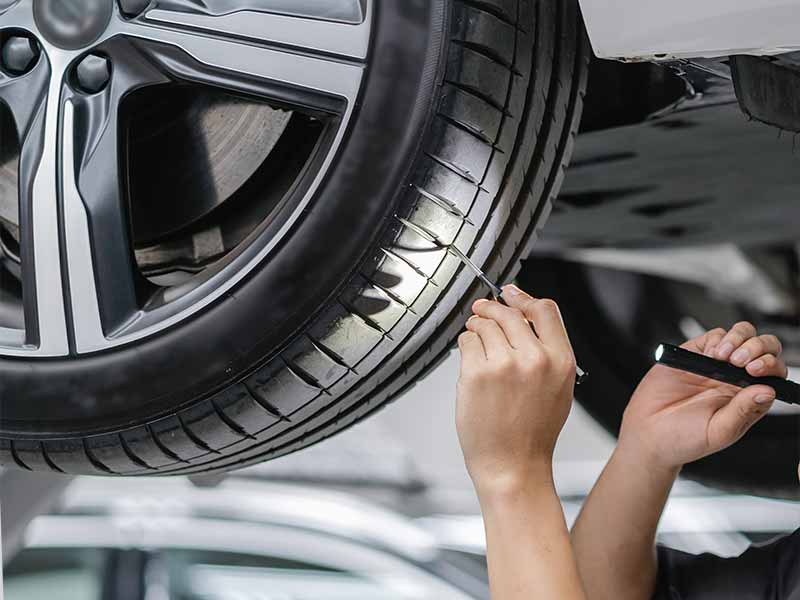
Preventing Future Issues: Maintenance and Care Tips
Now that we’ve tackled fixing out-of-round tires, let’s focus on preventing these issues in the first place. Regular maintenance and care are your best defenses against tire troubles.
Regular Inspections and Maintenance
Keeping a close eye can save you a lot of trouble:
- Routine Checks: Regularly inspect your tires for signs of uneven wear, bulges, or flat spots.
- Professional Inspections: Have your tires checked by a professional during your vehicle’s routine service. They can spot issues you might miss.
Proper Tire Storage and Usage
How and where you store your tires matters:
- Ideal Conditions: Store your tires in a cool, dry place away from direct sunlight and chemicals to prevent premature aging and deformation.
- Use Them Right: Avoid letting your vehicle sit in one spot for too long. Regular use helps prevent flat spots and keeps the tires in shape.
Choosing the Right Tires for Your Vehicle
Not all tires are created equal:
- Suitable Tires: Make sure you’re using tires that are appropriate for your vehicle and driving conditions. This can make a big difference in longevity and performance.
- Quality Matters: Invest in good-quality tires. They might cost more upfront, but they pay off in the long run with better performance and durability.
Resources
Below are some links you may find helpful when learning about tires:
- Tire safety and maintenance – National Highway Traffic Safety Administration
- Diagnosing vibration issues – Tire Review
Final Thoughts
Recognizing the symptoms of out-of-round tires, like uneven tread wear and vibrations, you can address these issues before they escalate. Remember, these problems won’t fix themselves and require professional attention.
Regular inspections, proper tire storage, and choosing the right tires for your vehicle are key in preventing such issues. This article aims to provide a comprehensive guide to identifying, fixing, and preventing out-of-round tire problems, ensuring a safer and smoother driving experience.
Good luck and happy motoring.
